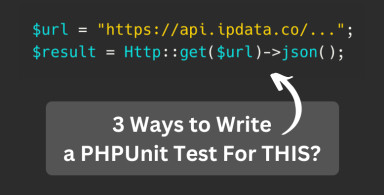Laravel is pretty strict about any kind of errors - if you try to use undefined variable or don't pass a necessary parameter you immediately see Whoops or another kind of error, depending how you handle them. There's a little trick with Input variables that might save you some time and lines of code.
So, let's assume the script is expecting a GET variable, something like [url]/[path]/?action=view - and we're using \Input::get('action') for that - what happens if action is not defined?
If your code looks like this:
$action = \Input::get('action');
You will see an error.
So we have to handle the possibility of empty action:
if (\Input::has('action')) {
$action = \Input::get('action');
if ($action != '') {
// ... do some action
}
}
There is another (easier readable?) way of doing it - with ternary IF:
$action = (\Input::has('action')) ? \Input::get('action') : '';
if ($action != '') {
// ... do some action
}
But the actually shorter way is to use a second parameter of \Input::get() function - a default value. If the parameter is undefined, Laravel will assign that second parameter and will not throw any errors:
if (\Input::get('action', '') != '') {
// ... do some action
}
This way you can make that necessary check in one line/action instead of two. Of course, a more proper way of such validation might be a separate Validator usage, but for quick and simple Inputs this trick might, well, do the trick.

-front_grid.jpg)


;-(3)-front_grid.jpg)
-front_grid.jpg)
No comments or questions yet...